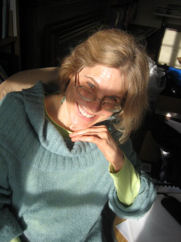There’s a proper order to things, especially on boats.
I have been getting ready for a couple of American friends coming to England for the first time. Since I thought I had better offer them an adventure, we’ll be heading down the Thames for London.
But even if I weren’t off for a trip, I would need diesel and water. Dusty, the fuel boat that cruises up and down the South Oxford, was due any day, and I hadn’t filled up with water since Easter Sunday when I bribed kids and friends with roast lamb afloat in return for helping me cruise a quarter mile up the canal, tap into a nearby hydrant (shhhhh – that’s why we do it evenings and Sundays), and reverse back to my mooring.
I love living on my boat, but I admit that moving it makes me so anxious that I barely sleep for days before and after the shortest journey. Steering 62 foot long, 6.5 feet wide Pangolin is a bit like how I imagine driving a tank would feel – except tanks are a lot shorter, and I’m guessing they have brakes.
Well, anyway, the rule is, water before diesel. If you do it the other way, the weight of the water (in front) could make the diesel (in back) spill into the canal.
In the meantime, I also ordered half a tonne of ballast (steel bricks), on account of the promised Thames adventure. Even good drivers have trouble working my boat and anyone who has attempted reverse gear has been muttering about ballast for years.
I negotiated (with promise of the Queen’s head) for my ballast to be delivered to the car park, right by the (dodgy) water point. My cunning plan was to drive up for water one evening, pick up the ballast next day, and reverse back just in time for Dusty: water, ballast, diesel, in that order, with a little coal thrown in, because it has been a long winter, and a cold spring.
But the timing needed luck: hanging out by the water point more than just overnight, waiting for deliveries, is Not Done. Water, ballast, diesel, was what I wanted.
Alas, Dusty beat the ballast man by two days, so by the time the bricks arrived I was watered and fuelled and back on my mooring. I had a half a metric tonne of steel bricks to load onto my boat, and the bricks were a quarter of a mile away. The choice was, move the boat to the bricks, or move the bricks to the boat.
I decided that I could carry 500kg of bricks by wheelbarrow, if I didn’t care how many times I went up and down the path, and so I went on until I had about a third of the bricks piled on the grass by my boat’s stern.
By early evening the Grumpy Mechanic, watching me trudge up and down with the wheelbarrow, had had quite enough.
Sod that! he shouted, and then excused himself, because he never uses bad language in front of a woman without apologising.
He drove his boat up to the water point and ordered me to hand him the bricks, two by two. Piling them onto the bow deck, he reversed his boat back to mine (it’s all right for him – his boat is fitted with a bow thruster). Together, in the late evening sunshine we tossed the bricks onto the towpath.
The next day, with my boat now full of water and fuel, I carefully placed the brick ballast in the stern of the boat. British summer had finally arrived and the temperature was in the high 80s as I leapt on and off the boat holding 10kg with each load.
When I had finished loading the bricks I changed clothes and went to a party, a three mile walk there, and another three back. I hadn’t had anything to drink stronger than water for a week or so, but as I felt the weight of the bottle of wine in my knapsack on the way to the party, I comforted myself that I wouldn’t be lugging it home.
In the morning I noticed, but ignored, a pain in my left calf. The pain got worse over the next few days until I could barely walk. My elder daughter became more and more anxious and urged me to go to the hospital. It isn’t like you to be hobbling about, Mum! she said.
I googled unexplained calf pain – unexplained because I really couldn’t think of anything I might have done to hurt myself – and read Deep Vein Thrombosis. I broke my six year no doctor stint.
I don’t have DVT. I do have water, diesel, ballast, and several empty wine bottles. Also a badly sprained calf muscle, unexplained.
The doctor says that something as simple as standing up too quickly can do it, at my age.































